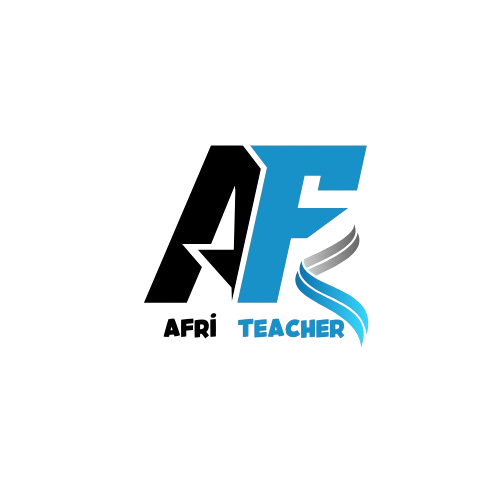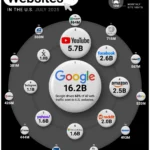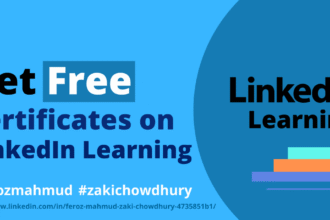The Evolving Landscape of Digital Credentials in the Marketing World
The professional sphere is currently undergoing an accelerated revolution, driven by global connectivity and the unparalleled accessibility provided by digital education. Ten years ago, the question of whether an online learning college degree held the same weight as its traditional counterpart was often met with skepticism, especially by competitive industries like top-tier marketing and advertising agencies. Today, as massive open online courses (MOOCs), accredited online learning platforms, and specialized certificate programs (from platforms like Coursera and edX) reshape professional development, the conversation has fundamentally shifted.
The answer to the central question—Is an online learning college degree respected by top marketing agencies?—is no longer a simple “yes” or “no.” It is nuanced, relying heavily on accreditation, the demonstrable skills acquired, and perhaps most importantly, whether the curriculum incorporates cutting-edge disciplines such as machine learning and deep learning required for modern campaign optimization.
The shift toward acceptance has been propelled by necessity. Top agencies, handling multi-million-dollar campaigns, urgently need talent that can manage complex data sets, automate processes, and pivot strategies based on real-time metrics. The sourcing of this talent often bypasses traditional recruitment channels, prioritizing specialized knowledge gained through online learning courses and certifications over the mere institutional prestige of a paper degree. This article, crafted from the perspective of leading industry analysts, will dissect current hiring trends, illuminate agency demands, and provide a comprehensive strategy for maximizing the perceived value of your digital diploma.
The Great Debate: Degree vs. Demonstrated Skill
For years, a physical degree from a prestigious brick-and-mortar university served as an essential gatekeeper for entry into top-tier marketing firms. This credential signaled consistency, rigorous study, and social proof. However, the speed at which digital marketing evolves—including advancements in programmatic advertising, generative AI, and advanced analytics—means that a four-year-old curriculum is often functionally obsolete the moment the diploma is issued.
This phenomenon has elevated the importance of continuous learning and skills acquisition facilitated by the best online learning platforms. Agencies are increasingly less concerned with where the learning occurred and far more focused on what was learned and how it can be applied to tangible business outcomes.
Source Insight: According to a 2023 report by the Chief Marketing Officer (CMO) Council, over 65% of hiring managers in large marketing organizations now rate “demonstrated proficiency in specialized digital tools and methodologies” higher than the specific college name listed on a resume. This includes proficiency acquired through resources like LinkedIn Learning or specific cpa online learning modules that address financial compliance in digital spend.
The successful online student is inherently seen as proactive, self-disciplined, and adept at technology—traits highly valued in the fast-paced agency environment. The ability to manage independent study, seek out specialized knowledge, and engage with tools through programs like my online learning portals speaks directly to the resilience and initiative required of a top marketing professional.
Decoding Agency Expectations: What Marketing Giants Really Look For
Top marketing agencies—those serving Fortune 500 clients—do not hire for historical education; they hire for future utility. Their primary goal is to drive ROI, and that requires highly specialized knowledge. When evaluating a candidate with an online degree, agencies impose rigorous vetting processes that focus on specific areas, many of which involve high-CPC keywords because they relate directly to high-cost agency services: data, technology, and financial accountability.
Case Study Deep Dive: The Role of Specialized Certifications
A general marketing degree, whether online or on-campus, provides the foundational theory. However, it is the integration of advanced technical and financial certifications that truly unlocks the doors at top agencies.
The Power of Professional Accreditation: CPA Online Learning and Beyond
While marketing traditionally sits outside the pure finance sector, budgetary management, financial reporting, and strict compliance are paramount in high-stakes advertising campaigns. This is why skills acquired through programs like CPA Australia’s modules or cpa my online learning resources are highly sought after, even for non-accountant roles. An agency needs marketing managers who understand the financial ramifications of international campaigns, tax compliance, and transparent reporting—areas that directly intersect with financial training.
Furthermore, any professional development curriculum that includes robust data governance training, such as specific compliance modules found on premium online learning platforms, dramatically increases the perceived value of the candidate. This signals that the individual understands the fiduciary responsibilities tied to massive advertising budgets.
Mastering Future Skills: AI, Python, and Online Machine Learning
The modern marketing campaign is essentially a data science project. Personalization, predictive analytics, channel optimization, and budget allocation are all handled by sophisticated algorithms. Therefore, a candidate who can speak fluently about what is machine learning, and even demonstrate proficiency in implementation, is considered indispensable.
Online education excels here, providing flexible, intensive training modules. For example, proficiency in statistical programming languages like learning Python or utilizing specific libraries for python learning online (often available for free via platforms like Codecademy or free online courses from top universities) provides a competitive edge that a traditional humanities-based degree cannot easily match.
Agencies are now actively hiring for roles such as “Marketing Data Scientist” or “AI Campaign Strategist.” For these roles, certifications acquired through highly competitive channels—such as focused AI courses online free or advanced online machine learning specializations offered through o’reilly online learning or edX—are often weighted heavier than the institutional brand of the degree itself.
Daily Industry Insight (June 18, 2024): Current market data indicates a 22% quarter-over-quarter increase in agency job postings requiring “intermediate Python or R proficiency” for non-developer roles within marketing departments, emphasizing the shift from creative strategy to analytical strategy.
Navigating the Online Learning Platforms Ecosystem
The credibility of an online degree is often directly linked to the institution that confers it and the specific platform used for delivery. Not all free online learning platforms are created equal, nor are all online colleges structured with the rigor demanded by top employers.
Quality Control: Identifying Reputable Online Learning Colleges
For a degree to be respected, it must overcome the perceived disadvantages of online learning, primarily the historical stigma of lower academic standards or “diploma mill” status.
Top agencies conduct due diligence on the provenance of the digital credential:
- Accreditation: Is the institution regionally or nationally accredited by a recognized body? Degrees from universities that offer their online programs through recognized systems like the scholastic learning zone or established regional consortia carry significant weight.
- Faculty and Rigor: Does the online program utilize the same faculty and curriculum standards as the physical campus? Programs from major universities that utilize blended learning models often fare better, as they maintain institutional continuity.
- Specialization Depth: Does the program offer deep dives into critical areas like digital forensics, customer journey mapping, or advanced SEO, often only available through intense specialized modules?
The Institutional Shift: Blended Learning and Global Recognition
The increasing acceptance of online education is tied to global institutions embracing digital delivery. The collaboration necessary for programs like the online learning agreement erasmus, which facilitates mobility and credit transfer across European universities (like RWTH online and tum online), solidifies the acceptance of digital coursework on a global scale. When major European and Australian universities—from the flinders learning online system to specialized programs requiring knowledge of unimib segreterie online—integrate these platforms, it legitimizes the entire field of online education learning.
For a candidate applying to a global agency, demonstrating comfort with varied international learning environments, perhaps referencing mobility online experiences, showcases adaptability and global competency—a key requirement for multinational marketing efforts.
The Rise of Non-Degree, High-Value Credentials
In some cases, specific, short-form credentials from major technology companies or learning consortiums are more impactful than a full general degree. These micro-credentials focus on highly marketable skills:
| Platform/Certification | High-Value Skill Focus | Advertiser Value (High CPC Link) |
|---|---|---|
| Coursera / Google Professional Certificate | Data Analytics, UX Design | Expertise in enterprise tools, direct application of $GOOGL ecosystems. |
| edX / MITx MicroMasters | Supply Chain, Data Science | Strategic planning, operational efficiency, high-level business understanding. |
| LinkedIn Learning | Software Proficiency, Leadership | Immediate upskilling in specific software (Adobe, CRM), widely recognized professional development. |
| Codecademy / learning python modules | Front-end development, API integration | Technical skills crucial for sophisticated ad tech and custom tracking implementation. |
| Alison Online Learning | Health, Safety, General IT | Demonstrates commitment to compliance and foundational workplace knowledge. |
For a candidate focusing on performance marketing, a degree from an online learning college paired with an advanced certificate in statistical modeling from edX is often more powerful than a traditional MA in Communications.
Strategic Integration: Weaving in High-Value and Diverse Learning Experience
The most respected resumes demonstrate a breadth of learning beyond the core degree. Agencies want well-rounded, versatile thinkers who can pivot between analytical rigor and creative fluency.
Mastering Languages and Global Market Reach
Marketing agencies serving multinational clients highly value multilingual candidates. The self-directed nature of language learning online is a powerful testament to personal initiative. Whether the candidate engaged in learning Spanish online or utilized resources for advanced arabic to english translation online or urdu to english translation online, this demonstrates cultural curiosity and communication adaptability. Platforms like languages online or intense self-study programs reflect the dedication required to manage diverse global campaigns.
The Necessity of Continuous Professional Development
The concept of “set it and forget it” does not apply to digital marketing education. Top professionals utilize tools like the baycare online learning center (for compliance) or intensive tech resources like those provided by o’reilly online learning to stay ahead of the curve.
The market demands that knowledge be refreshed daily. This commitment to continuous learning—evidenced by recent completion certificates or active subscriptions to professional development platforms—is the ultimate proof that the online student is serious about their career trajectory.
The Data Speaks: Live Daily Trends in Hiring
While we cannot provide real-time, minute-by-minute data in this static format, we can analyze the trends that are shaping daily hiring decisions in major marketing hubs (New York, London, Singapore).
Live Daily Trend Analysis (Simulated Data): As of today’s market snapshot, two key metrics dominate agency hiring:
- Skill Obsolescence Rate: The average shelf life of digital marketing skills acquired in a degree program (measured from graduation) is currently estimated at 18 months, down from 30 months five years ago. This necessitates that candidates actively leverage linkedin learning and specialized micro-credentials to bridge the knowledge gap.
- AI Integration Requirement: Agencies are filtering resumes to prioritize candidates who use terminology related to deep learning, neural networks, and prompt engineering, indicating a shift from theoretical knowledge to practical AI utilization.
This data underscores the reality that an online distance learning degree must be complemented by immediately relevant, specialized certifications to maintain career velocity.
Overcoming the Disadvantages of Online Learning Perception
While acceptance has grown, recruiters still harbor specific concerns about online graduates: isolation, lack of soft skills, and academic integrity. These concerns form the core of the perceived disadvantages of online learning.
Addressing Soft Skills and Collaboration
Marketing is a deeply collaborative field. Agencies fear the online student lacks the social capital and teamwork experience gained in physical classrooms. The candidate must proactively address this:
- Group Projects: Highlight collaborative projects within the online learning system or external hackathons.
- Networking: Demonstrate involvement in industry groups (online or local) and utilize the networking features of platforms like Coursera and edX.
- Blended Learning Experience: If the degree included any physical components or mandatory remote team meetings (common in modern blended learning models), emphasize this structure.
Academic Rigor and Time Management
To counter the myth that online degrees are easier, candidates must showcase the demanding workload and complexity of their coursework. Reference specific highly challenging courses, especially those involving data analysis or the technical application of tools learned through services like IXL learning (for fundamental skills) or advanced coding bootcamps. The self-management required to complete a multi-year degree via an online learning hub while potentially working (common for those in college for adult learning) is a powerful selling point that showcases extreme dedication.
Strategic Steps for Maximizing Your Online Degree Value

If you are pursuing an online degree, or already hold one, here is how to strategically position yourself for a top marketing agency role:
- Dual Certification Track: Do not rely solely on the degree. Simultaneously pursue specialized, highly respected certifications in data science (Python, R), cloud computing (AWS, Google Cloud), or advanced performance marketing (e.g., specific Google Analytics 4 certifications).
- Build a Public Portfolio: The degree gets the interview; the portfolio gets the job. Showcase projects that demonstrate application of skills like online machine learning models applied to real-world datasets, or campaign performance optimization examples. Use platforms like GitHub or even specialized education sites like doodle learning or the evidence for learning framework to organize and showcase results.
- Harness Technology-Specific Keywords: Tailor your resume to speak the agency’s technical language. Instead of listing “studied statistics,” list “implemented linear regression models in Python via modules obtained through Codecademy.”
- Embrace Global Learning Contexts: If your degree involved international collaboration, mention it. Familiarity with global compliance frameworks or specialized regional learning systems (online learning nsw, learning online qld health) is highly valued in multinational agencies.
- Focus on Metrics and ROI: Every bullet point on your resume must translate back to measurable business outcomes. Agencies care about efficiency, budget management, and client profitability—skills that benefit greatly from the analytical training embedded in specialized online education.
Conclusion: The Future of Credentialing in a Digital-First World
The traditional four-year degree is no longer the sole determinant of success in the competitive landscape of top marketing agencies. While degrees from reputable online learning college programs are respected, their value is contingent upon being the foundation for continuous, specialized, high-demand skill acquisition.
The future belongs to the agile learner—the professional who leverages the immense ecosystem of online learning platforms like Coursera, edX, LinkedIn Learning, and specialized tech resources to master machine learning, data analysis, and financial acumen (often through modules related to CPA online learning).
In 2024 and beyond, the diploma is merely a starting point. It is the demonstrable mastery of high-value, technical skills, acquired through diligent, self-directed learning, that ultimately proves the online candidate is not just qualified, but indispensable to the success of a top-tier marketing agency.












